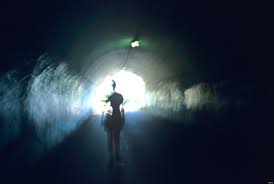 Driven by ambition and curiosity to learn what lies on the other side of death, five medical students deliberately stop their hearts in order to experience “the afterlife” in the new thriller “Flatliners” (Sony Pictures), which opened in U.S. theaters on Sept. 29.
Driven by ambition and curiosity to learn what lies on the other side of death, five medical students deliberately stop their hearts in order to experience “the afterlife” in the new thriller “Flatliners” (Sony Pictures), which opened in U.S. theaters on Sept. 29.
They quickly discover that there are unexpected and terrible consequences of dallying with death — but not everything they experience after “dying” is in the realm of science fiction. A growing body of research is charting the processes that occur after death, suggesting that human consciousness doesn’t immediately wink out after the heart stops, experts say.
But what really happens in the body and brain in the moments after cardiac arrest? [The Science of Death: 10 Tales from the Crypt & Beyond]
The terms “cardiac arrest” and “heart attack” are frequently used interchangeably, but they are not identical conditions, according to the American Heart Association(AHA). During a heart attack, a blocked artery prevents blood from reaching a portion of the heart, which can cause that section to die — though the heart continues to beat, the AHA explained.
During cardiac arrest, the electrical signals driving the […]











Such an interesting field of study yet this article says remarkably little of any import!
Bravo.
Dr. Pim van Lommel, a cardiologist, wrote a great book on this subject called: “Consciousness Beyond Life”, subtitled “The Science of the Near-Death Experience”. In that book, published in 2010, he describes the many, many patients of his who “died” on the operating table, then came back to life and the stories they all told were remarkable. Most remembered seeing everything happening in the operating room while they were “dead” along with other remarkable things they saw and experienced. To me, this is one of the most important books on non-local consciousness in my personal 1,000+ book library. I should mention that I had an out-of-body experience back in 1987 when a careless driver ran me and my motorcycle off the road and my consciousness left my body. It was amazing, and I did remember everything in my entire life during the experience in graphic detail, although it did not remain with me after I woke up in the hospital, except in a small amount. I do know from that experience that consciousness does survive death.
Should anyone still believe that near death experiences are caused by residual consciousness or by oxygen deprivation, have a look at what Larry Dossey reported in his book One Mind (pp. 100ff) about shared death experiences. There are a few reports about them on the Internet as well.